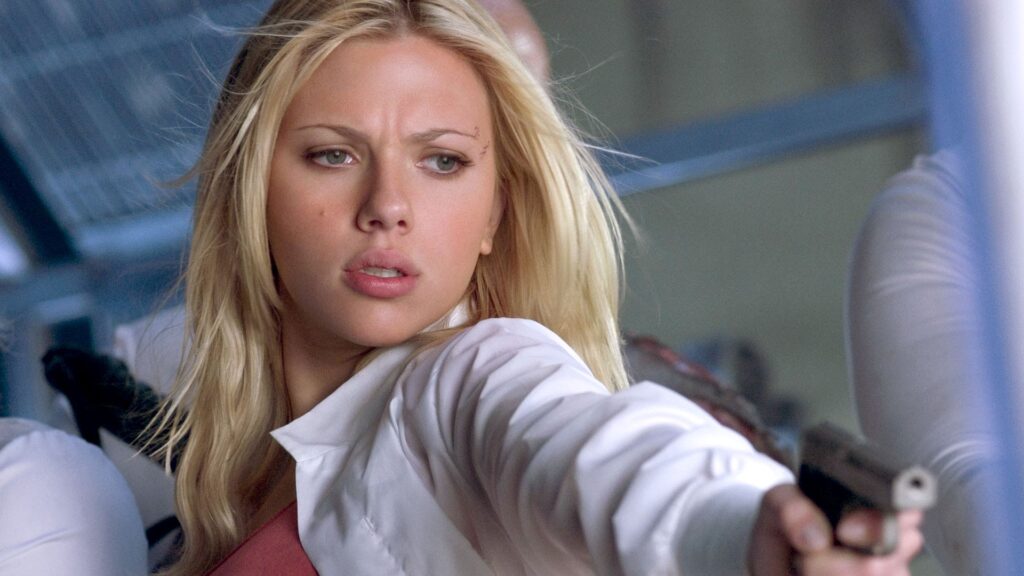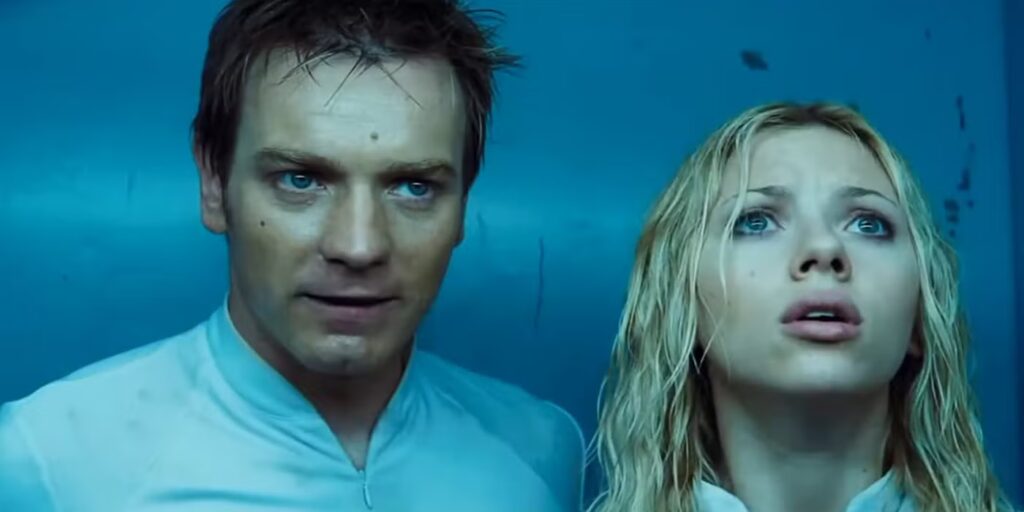In my freshman year of high school, my biology teacher, Mrs. John, would end each quarter with a movie connected to a concept in the field (“An Inconvenient Truth” for environmentalism, “Osmosis Jones” for microbiology, “Gattaca” for genetics).
For the final quarter, Mrs. John offered a more action-packed selection: Michael Bay’s “The Island” (2005), which touched on a lot of thorny questions about bioethics that have only multiplied over the course of two decades.
Bay once mocked his detractors with a pithy declaration: “I make movies for teenage boys. Oh, dear, what a crime.” Indeed, prior to 2005, his reputation was built on ludicrous blockbusters like “Armageddon” (1998), which played as a premonition of Bay’s five bludgeoning “Transformers” films yet to come.
For my adolescent self, however, “The Island” was an enticing introduction to Bay—and thanks to its uncharacteristically thought-provoking nature, it has never been dethroned as my favorite Bay film.
Today, the movie’s once-futuristic vision of 2019 is queasily prescient. In this future, rich clients buy clones whose organs are harvested, maglev and monorail trains speed through California, and most automobiles are sporty mid-2000s American models (in art and life, gas-guzzling vestiges of the past are difficult to escape).
At the heart of Bay’s cautionary concoction is Lincoln Six Echo (Ewan McGregor), whose journey begins at the Merrick Corporation, which offers pregnancy surrogates as a service. Lincoln is on the precipice of a moral awakening when Lima One Alpha (Siobhan Flynn) goes into labor and is told she and her child will be sent to “The Island,” which is said to be the last uncontaminated zone in the outside world.
That night, a sleepless Lincoln finds his way into forbidden passageways to the medical unit where Lima is giving birth—and watches as doctors inject her with lethal poison. Since Lincoln’s friend Jordan Two Delta (Scarlett Johansson) has just won the Island lottery, she will meet a similar fate if he doesn’t save her.

Dystopian surrogacy is horrifying enough to the audience, but it takes on even more layers of twisted dramatic irony. During a sales pitch, Dr. Merrick (Sean Bean) lies that the clones are persistently vegetative (as required by the “Eugenics Laws of 2015”).
Privately, however, Dr. Merrick tells Burkinabé mercenary Albert Laurent (Djimon Hounsou) that keeping the clones vegetative left their organs non-viable—and hires him to track down the escaped Lincoln and Jordan.
“I have discovered the Holy Grail of science,” Dr. Merrick proclaims. “I give life.” Unfortunately, his hollow rationalizations seduce many, including Lima’s sponsor and her partner, who are willing to accept the pitch of a vegetative surrogate.
This scenario is now even more chilling due to the Adriana Smith case. Smith, a pregnant Black woman, was declared brain dead in 2025 due to blood clots. Because of Georgia’s strict anti-abortion laws, she was kept on life support for four months until the fetus was prematurely removed in an emergency C-section, all despite public opposition from doctors and Democratic politicians.
It’s hard to stomach the aftermath of Lima’s death in “The Island”—not only because of stories like Smith’s, but because the film’s imagery evokes real-world police brutality against Black people.
In a sickening scene, Starkweather Two Delta (Michael Clarke Duncan) breaks out of surgery, only for guards to shoot him with guns that fire nonlethal (but still brutal) barbed hooks on cables. Then they drag Starkweather away as he screams and begs for his life.
Equally disturbing is that Starkweather’s brief escape owes to the doctors failing to anesthetize him enough. Ostensibly, this is due to his large, muscular stature, but it also recalls the long-debunked medical myth that Black people have a higher pain tolerance. Elements of that belief still persist today, even among doctors and medical students.
“No! I don’t want to die, no!” Starkweather pleads. “I want to go to the Island!” In addition to being Bay’s best film, “The Island” is a reminder of the inescapable emotional gravity that Duncan’s presence could generate (the actor died in 2012).

As “The Island” progresses, Merrick’s God complex takes him to greater depths of depravity, often reflecting historical atrocities. When he learns that all of the clones from the last several years can recall their sponsors’ memories, he immediately plots to cull them, directing his staff to lure numerous clones into an incinerator.
The Holocaust-like imagery of the incinerator scene is likely not a coincidence, as several of the creators involved are Jewish: Bay, co-writer Alex Kurtzman, and Johansson (notably, Jordan becomes one of the clones’ saviors).
Merrick’s plan also places him in the ableist realm of Nazi doctors like Hans Asperger, since Lincoln and his cohort display symptoms resembling various psychological conditions. With his special interest in high-speed vehicles and poor reactions to changes in his routine, Lincoln codes as autistic, while Brian Stepanek’s Gandu Three Echo is prone to depression and anger, pounding the wall when he fails to win the Island lottery.
Considering the “Transformers” era that followed, “The Island” is a strangely ruminative film. By 2009, Bay was best known for over-sexualizing female characters (leading to his infamous feud with Megan Fox) and having robot characters embody racial stereotypes—and since then, his image has hardly improved.
This year, Bay directed a Super Bowl spot promoting the Secret Service, alienating many fans by collaborating with the Trump administration. It wasn’t the first time Bay pandered to MAGA cultists: His 2016 film “13 Hours: The Secret Soldiers of Benghazi” brought the 2012 Libya attack back into public consciousness, just in time for the GOP to use it as a cudgel against Hillary Clinton’s campaign.
Nevertheless, “The Island” still exists to show a more honorable side of Bay. Just as “Raiders of the Lost Ark” (on which Bay interned for George Lucas as a teenager) taught us to fight literal Nazis, “The Island” effectively teaches us to fight the figurative ones.
“The only thing you can count on is that people will do anything to survive,” Lincoln says. “I just want to live. I don’t care how.” How ironic that the inventor of “Bayhem” once made us care not only that we live, but how we live.



